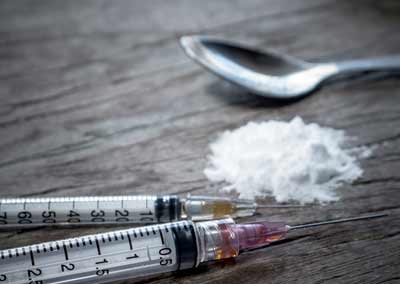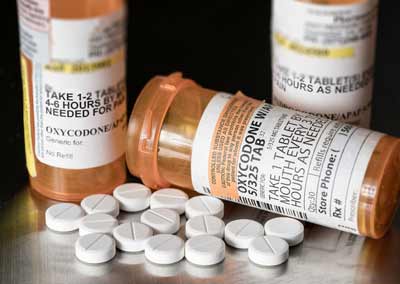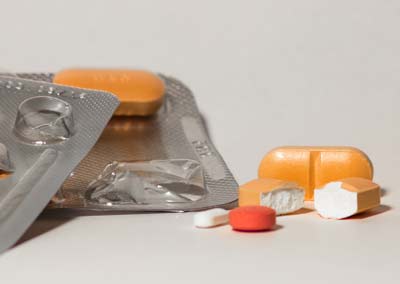
Alcohol Addiction
When someone mentions alcohol, the first thing we think of is beer, wine, or a cocktail. However, while there are actually several different types of alcohol in existence, only one is fit for human consumption - ethanol. Ethanol is the result of fermentation; fermentation occurs when yeast microorganisms start to break down grains or fruit, releasing carbon dioxide and ethanol. Consumable alcohol has been around as long as fruit and grains, although it wasn’t until China in 7,000 B.C. that alcohol was served as a beverage. Ever since, the process of developing and refining techniques in distilling, brewing, and winemaking has grown, evolving into the $500 billion industry it is today. It seems like there are always new studies coming out, touting the benefits of moderate alcohol consumption, from reducing strokes to improving heart health to managing weight. But if you are one of the 15 million people in the U.S who suffers from alcoholism, there is no such thing as “moderation,” so any benefits are far outweighed by both the short term and long term negative effects of over-drinking.How Does Alcohol Affect the Brain?
Alcohol functions in your brain like every other addictive substance - by affecting neurotransmitters. Neurotransmitters are the chemicals in your brain that convey messages to the neurons that control your movement, behavior, and essentially all of your thought processes. When you drink alcohol, it boosts production of the neurotransmitter GABA (which helps control perceptions of fear and anxiety) and suppresses the production of glutamate (which governs learning and memory). It also increases production of dopamine, the chemical that stimulates the reward and pleasure centers in your brain. Constant alcohol use artificially stimulates the production of GABA, glutamate, and dopamine, making your brain think that it’s getting enough of these chemicals on a regular basis, so it slows its natural production. Soon, you need more and more alcohol to not only supplement the low level of natural chemicals, but to get yourself past your increased tolerance. This continues until you’re completely addicted, and need alcohol to be able to face even the simplest daily tasks.Signs of Alcohol Addiction
- No control over how much they drink
- Drinking daily, and obsessing about their next drink
- Increased denial that drinking is a problem
- Uncharacteristic or risky behavior when drinking (driving drunk, promiscuous)
- Feelings of guilt or shame about their drinking or drunk behavior
- Drinking in secret to avoid others noticing
- Binge drinking or blackouts
- Can’t imagine life without alcohol
Effects of Alcohol on the Body
Short term alcohol abuse can cause several side effects - weight gain, suppressed immune function, and increases in blood pressure and cholesterol. Over the long-term, alcohol abuse or addiction also greatly increases your risks for:- Liver damage and cirrhosis
- Permanent death of brain cells
- Depression
- Nerve damage
- Cardiac issues
- Ulcers
- Pancreatitis
- Skin problems
- Chronic illnesses
- Cancer
Treatment for Alcohol Addiction
When you come to Tree House Recovery PDX, you will find that we offer a highly adaptive program that is designed so that each individual is provided with a recovery plan to suit their specific needs. Our eight interconnected treatment modalities revolve around healing you as a whole person, not just addressing the symptoms of addiction, and we are dedicated to your complete and lasting recovery. If you or a loved one is struggling with an alcohol addiction, contact us today at (503) 850-2474 and let us help you take the first step towards recovery.Understanding alcohol addiction
Identifying an alcohol addiction can be difficult if you don't know what to look for. The fact that drinking is socially accepted makes it especially hard to recognize when there is a problem. However, being familiar with the signs of alcohol addiction can help you distinguish between normal and problem drinking.
isolation
As alcohol addiction progresses, it is common to distance oneself from friends and family. Warning signs include lack of interest in social activities and long periods spent alone.

unmanageability
The inability to manage daily tasks is a common sign of alcohol addiction. Not paying bills, falling behind on chores, and declining personal hygiene are warning signs.

Hiding Alcohol
Hidden bottles of alcohol and spaces littered with empties are telltale signs of alcohol addiction. Bottles found in the bedroom are of particular concern.

Physical consequences
Alcohol is a strong drug that creates substantial physical consequences when abused. Signs include shaking, sleeping late, and irritability.





